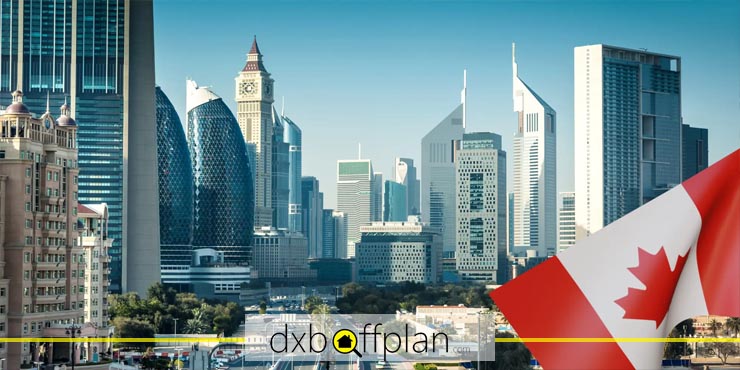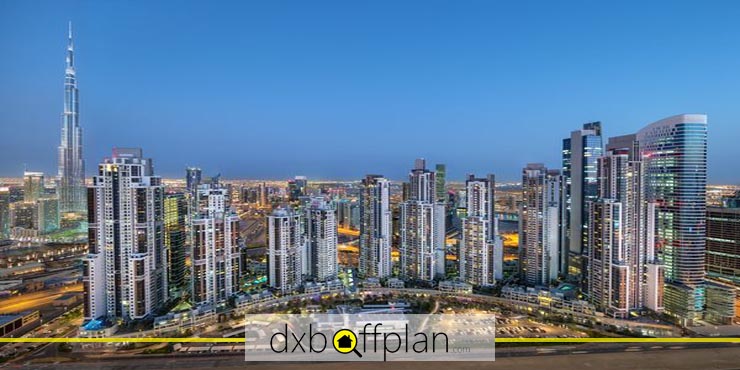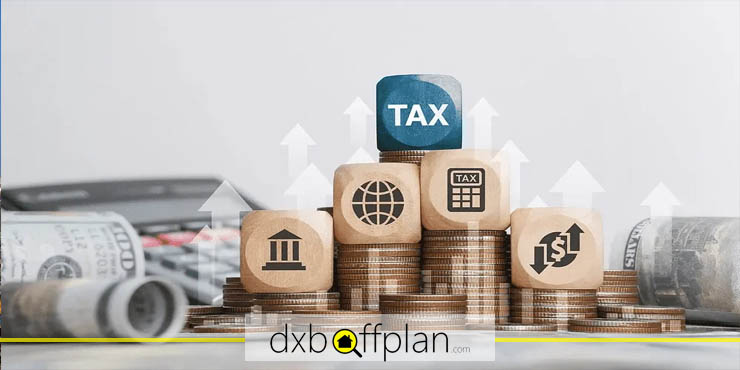Dubai vs Canada: A Detailed Property Investment Comparison
Amongst all methods of investments in today’s fast-changing world, property purchasing still holds its position as one of the finest ways for wealth conservation and creation. Among all such sizzling hot investment destinations all around the world, there are two places that hold a prime position in people’s lists: Dubai and Canada. Each has its own fascination and attracts many investors for different reasons. Dubai’s emerging economy, high-end developments, and modern way of living attract attention, a portal to the Arab world. On the other side is Canada with its secure economy, investor-friendly policies, and first-class standard of living always putting it high in foreign investors’ lists.
But above all, what’s most important is which is the better option for purchasing property—Dubai or Canada? The choice will hinge upon numerous factors such as reason for investment, budget, duration of stay, return on investment, and even visa policy. In this article by Dxboffplan we will give you a Dubai vs Canada property investment comparison, allowing you to make an informed and sure decision based upon a comprehensive and detailed analysis of the two crowded real estate scenes.
Toronto vs Dubai: Investment Point of View
If you are searching for real estate investments, two cities are under our focus currently: Toronto, Canada’s financial center, and Dubai, the center for investments in the Middle East. Both offer numerous opportunities which would interest different types of investors. But which one would be suitable for your goals, then? Let us have a Dubai vs Canada property investment comparison:
Toronto’s Real Estate Market: Healthy but Difficult
The city has one of Canada’s strongest real estate markets. This is due to the finance, technology, and business sectors. The population expansion and ongoing demand for housing here offer great real opportunities. But what are the challenges?
- A high property price limits accessibility to new investors
- Stringent controls and complex tax legislations are expensive
- Fierce competition for buyers provides entry obstacles
- Central areas require significant upfront capital investment
- Best suited for long-term, stable returns—not for quick profit
Dubai’s Property Market: Quick, Adaptable, and Reasonably Priced
Dubai has emerged as a new real estate hub in the world because of its fast emerging economy and investor-friendly environment. Open policies and diversified properties allow easy entry and diversification of your portfolio here. Key points are:
- No capital gains or property income taxation
- Range of property choices from villas to affordable apartments
- World-class infrastructure and forward-looking urban planning
- Simplified Procedure for Overseas Investors
- Cheaper than the large cities in the West
Property Price Comparison between Toronto and Dubai
Price is often the deciding factor when it comes to real estate investment. The attractiveness of a market depends upon cost of entry, sustained cost, and return on investment. Let’s compare property prices in Dubai and Toronto in 2026:
| Property Type | Dubai (AED) | Dubai (USD approx.) | Toronto (CAD) |
| Studio | From 475,000 | Approx. $129,000 | From 570,000 |
| 1-Bedroom | From 800,000 | Approx. $218,000 | From 600,000 |
| 2-Bedroom | From 1,200,000 | Approx. $327,000 | From 850,000 |
| 3-Bedroom | From 1,500,000 | Approx. $408,000 | From 1,000,000 |
| Independent House / Villa | From 1,800,000 | Approx. $490,000 | From 1,500,000 |
| Luxury Penthouse | From 2,500,000 | Approx. $681,000 | From 2,500,000 |
Average Property Price
- Dubai: Approx. 1,030,000 AED (~$280,000 USD)
- Toronto: Approx. 1,160,000 CAD
Toronto Real Estate Prices: High Entry, Low Flexibility
Toronto boasts one of Canada’s hottest and priciest property markets. Toronto has long drawn domestic and foreign buyers who are willing to pay top dollar. But here are the obstacles:
- Hard to enter the property particularly for new buyers.
- significant financial barriers for Investors looking to purchase multiple properties.
- Hard to build a diversified real estate portfolio.
Dubai Property Prices: International Popularity, Affordability
The property sector in Dubai is well-known for delivering high-quality modern property at reasonable prices, which attracts local as well as overseas purchasers and investors. Key points include:
- The prime spots like Downtown, Palm Jumeirah, and Dubai Marina start at 1.2 million AED (~450k CAD)
- Possible entry for a budget half that of Toronto
- Increased scope for property diversification Increased luxury and value for your money
- More accessible for medium-sized investors to enter
Real Estate Taxes in Canada vs Dubai: Which Is More Friendly?
Tax regime is an important factor when foreign property is being invested in. Taxation has a significant part in determining overall return from real estate investment. Here is a closer look:
Canada Tax Burden: Heavy for Investors
Canada has a complex, multi-layered tax system that significantly impacts investment returns. Key taxes investors face include:
- 13% Sales Tax: Most buyers are required to pay 13% sales tax.
- Land transfer tax: A one-time tax imposed when ownership is transferred.
- Income and capital gains tax: When you sell a property for a profit, part of your profit is taxable.
Higher taxes and foreign purchasing limits are imposed upon non-residents, who are further subject to all-out bans in certain markets.
Dubai: Simple, Transparent Tax System
Unlike Canada, Dubai boasts a simple and adaptable taxation system. Aside from some special charges, there is no complicated tax hurdle from the UAE government. Here’s a closer look:
- No such heavy taxes as income tax, capital gains tax, or property purchase-related sales tax.
- Only a 9% commercial property tax, except for privately registered residential property, which is exempted.
- Payment for a 4% transfer charge should be made upon booking at no extra cost.
These qualities have contributed to making Dubai a favorite among foreign investors seeking low taxation and light regulation.
Dubai vs Canada: Housing Supply
The law called supply and demand operates in the property market. The prices decline when demand is stagnant or decreasing while supply is high, and increase when demand increases while supply is low. This fundamental principle can be seen in the world’s two biggest property markets in Canada and Dubai. Let’s discuss the two markets highlights in terms of supply:
Dubai’s Housing Oversupply Problem
Dubai has seen an unprecedented level of building construction in recent history. Its rapid growth destabilized the balance of the market and caused property prices to go down. Accounts state that Dubai residential property price Index dropped around 11% in 2015. Therefore, while investing in Dubai property is capable of creating good rentals, the current market might not secure you capital growth.
Canada: Price Hike Due To Severe Housing Shortfall
On the other hand, Canada’s acute shortage pushes prices much higher. Canada’s property prices have increased about twice as much because of supply-demand disequilibrium. For those who are looking for long-term capital appreciation and security, Canada’s residential sector can prove to be a good and profitable option.
Rental Yields Dubai vs Toronto: Which Market Offers Better Results
Rental yield, i.e., the ratio of property price and annual rental income, is an investment success benchmark. The higher the yield, the sooner is the return from investment. Therefore, which among Toronto and Dubai provides a higher rental yield? Let’s find out:
Toronto Market: Stable with Low Yields
While Toronto’s rentals continue to hold firm, yields normally range between 3% and 5%. Rentals are high and net profit is further impacted by other fees like taxes and maintenance, which delay ROI.
Dubai Market: High Rental Yields
Dubai offers 6-9% yields, ranking it as one of the globe’s most attractive markets for rentals. This high yield is due to:
- Sudden increase in migrant population requiring temporary stay
- Prosperous tourism spurring short-term rental demand
- Low or no taxes and low maintenance costs
These dynamics allow Dubai rent properties to provide faster returns and higher monthly revenues for property investors. For those who focus on rental income and fast returns, Dubai is light years ahead of Toronto. The renting environment in Dubai is much busier and, at lower costs, provides higher net earnings.
Why Dubai Real Estate Investment Is a Better Choice Overall
Dubai has been one of the top destinations for real estate investment in recent times—and for good reasons! Following are some of the major advantages for which people are inclined towards investment in Dubai properties:
No Taxes
First and foremost, there are no taxes when purchasing at the point of sale. There is no capital gains tax nor personal income tax for an investor when a deal is concluded. This seriously reduces the cost of investment. The acquisitions are conducted after paying at least 50% of a property’s price. Surprisingly, unlike in some countries like Canada, no lawyer is needed when registering a property in Dubai.
Low Property Maintenance Costs
Second, low property maintenance costs. This is between 15 and 20 AED average cost per square foot, which is lower than that in other major world cities. This makes long-term property ownership less expensive and raises profitability.
Residency Opportunities
Entering the Dubai real estate market can lead to getting UAE residency by investment. A 2 million AED investment makes an investor eligible for a 10-year Golden Visa. Keep in mind, though, that this is for residency and does not grant working rights. A 750,000 AED investment makes an investor eligible for a 2-year investor visa, which is an easy and hassle-free choice.
Off-plan Opportunities
There are many off-plan (ongoing) developments available in Dubai’s market. They offer the luxury to buyers to pay half upfront and get possession of a unit at a later date. A good option for those who would like to spend less as a starting amount or who would like to earn a return in less time.
High Rental Yields
There are high rental yields in Dubai. You can rent your property out for regular monthly income, since there is a dynamic and competitive rent market in the city. Keep in mind, however, that there exists a rent market that can go up and down. So if you are looking for long-term capital appreciation, then other markets could be considered too.
Final Words
We now have discussed everything you need to know when it comes to Dubai or Canada for real estate investment. Dubai is cheaper, having higher rentals, tax-free status, and faster entry into an emerging economy. These factors make it cost-effective and attractive for investment. Its pro-business policies, variety of available properties, and residency status are additional reasons for its popularity.
Canada provides stability in finances and good investment security but difficult regulations, high prices, and numerous taxes, deter most investors from entering. Canada is suited for long-term capital conservation and less competitive for prompt returns or new investors. Canada’s secure economy is also negated by increased costs and bureaucracy.
Ultimately the choice in the Dubai vs Canada property investment comparison depends on your personal goals, budget, and long-term vision as an investor. Dubai’s property market is a great beginning for a secure, profitable, and future-oriented investment in the Middle East region. Take advantage of free consultation, direct access to off-plan property, and expert assistance offered by our agents in Dxboffplan. Call us today and discover what Investment Strategies in Dubai are waiting for you in Dubai!
frequently asked questions
Yes, investing a minimum of 750,000 AED makes you eligible for a 2-year investor visa and investing 2 million AED or more makes you eligible for a 10-year Golden Visa.
Foreigners may buy property in almost all areas of Dubai without special visas or residency requirements.
Yes, overall, Dubai real estate-even that in prime areas—is substantially less expensive than Toronto or major Canadian cities.











